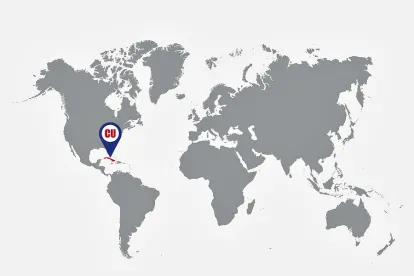On May 30, 2019, the Office of Foreign Assets Control (OFAC) amended the Cuban Assets Control Regulations (Cuba Regulations), 31 C.F.R. Part 515 (2019), removing authorization for group people-to-people education travel to Cuba. Certain previously authorized group people-to-people education travel may continue to be authorized under a grandfathering provision that will also be added to the regulation. The revisions are effective as of June 5, 2019.
Importantly, the revocation reflects the Trump administration’s significant shift in policy towards Cuba, as the revisions implement changes restricting non-family travel first announced by National Security Advisor John Bolton in an April 17, 2019, foreign policy address. Under an earlier tightening of restrictions in 2017, OFAC had only restricted the General License for group people-to-people travel to require such travel be conducted by organizations subject to U.S. jurisdiction (see previous GT Alert, U.S. Implements President Trump’s Cuba Policy), while this latest move removes the authorization entirely.
Previously authorized group people-to-people travel will be eligible for continued authorization under the grandfathering provision if the traveler has already completed at least one travel-related transaction (such as purchasing a flight or reserving an accommodation) prior to June 5, 2019.
In conjunction with the above, the Bureau of Industry and Security (BIS) amended the Export Administration Regulations (EAR) license exceptions and its licensing policies to “generally prohibit non-commercial aircraft from flying to Cuba and passenger and recreational vessels from sailing to Cuba.”
The License Exception Aircraft, Vessels and Spacecraft (AVS) in EAR § 740.15 has been amended by BIS to remove private and corporate aircraft, cruise ships, sailboats, fishing boats, and other similar aircraft and vessels from eligibility for the license exception. This means that all such aircraft and vessels subject to the EAR may no longer be exported or reexported to Cuba under the AVS exception, and operators will instead need to apply for a BIS license.
The following types of aircraft and vessels remain eligible for License Exception AVS: 1) commercial aircraft operating under Air Carrier Operating Certificates and other Federal Aviation Administration certificates; 2) authorized air ambulances; and 3) cargo vessels for hire for use in transportation of separately authorized items.
Parties that intend to travel to Cuba or to provide Cuba-related transportation services should carefully review the revised regulations to determine whether the new measures impose licensing requirements or other compliance obligations. Parties with previously scheduled group people-to-people travel to Cuba may wish to check the dates of their travel-related transactions and confirm that at least one purchase was made prior to June 5, 2019.
Although these latest revisions do not affect the remittance allowances permitted under the Cuba Regulations, Ambassador Bolton specifically mentioned in the April 17 speech that new restrictions on remittances will be forthcoming. Interested parties should, therefore, expect the restrictions on remittances to be implemented in the near future.







 />i
/>i


